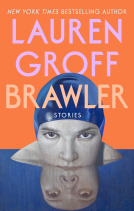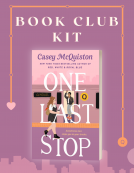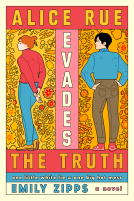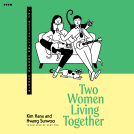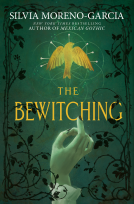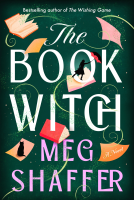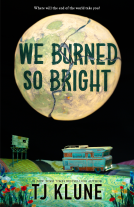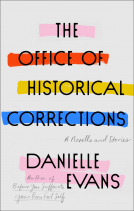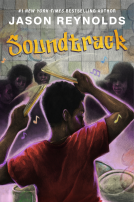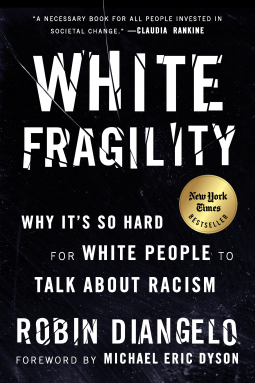
White Fragility
Why It's So Hard for White People to Talk About Racism
by Dr. Robin DiAngelo
This title was previously available on NetGalley and is now archived.
Send NetGalley books directly to your Kindle or Kindle app
1
To read on a Kindle or Kindle app, please add kindle@netgalley.com as an approved email address to receive files in your Amazon account. Click here for step-by-step instructions.
2
Also find your Kindle email address within your Amazon account, and enter it here.
Pub Date Jun 26 2018 | Archive Date Jul 31 2019
Talking about this book? Use #WhiteFragility #NetGalley. More hashtag tips!
Description
In this “vital, necessary, and beautiful book” (Michael Eric Dyson), antiracist educator Robin DiAngelo deftly illuminates the phenomenon of white fragility and “allows us to understand racism as a practice not restricted to ‘bad people’ (Claudia Rankine). Referring to the defensive moves that white people make when challenged racially, white fragility is characterized by emotions such as anger, fear, and guilt, and by behaviors including argumentation and silence. These behaviors, in turn, function to reinstate white racial equilibrium and prevent any meaningful cross-racial dialogue. In this in-depth exploration, DiAngelo examines how white fragility develops, how it protects racial inequality, and what we can do to engage more constructively.
Advance Praise
“The value in White Fragility lies in its methodical, irrefutable exposure of racism in thought and action, and its call for humility and vigilance.”
—The New Yorker
“[T]houghtful,
instructive, and comprehensive . . . This slim book is impressive in
its scope and complexity; DiAngelo provides a powerful lens for
examining, and practical tools for grappling with, racism today.”
—Publishers Weekly, Starred Review
“White Fragility
is a book everyone should be exposed to. With any luck, most who are
will be inspired to search themselves and interrupt their contributions
to racism.”
—Shelf Awareness, Starred Review
“A
valuable guide . . . While especially helpful for those new to the
critical analysis of whiteness, this work also offers a useful refresher
to anyone committed to the ongoing process of self-assessment and
anti-oppression work.”
—Library Journal
“A penetrating new book.”
—Pacific Standard
“A
vital, necessary, and beautiful book, a bracing call to white folk
everywhere to see their whiteness for what it is and to seize the
opportunity to make things better now.”
—Michael Eric Dyson
“As
a woman of color, I find hope in this book because of its potential to
disrupt the patterns and relationships that have emerged out of
long-standing colonial principles and beliefs. White Fragility is an essential tool toward authentic dialogue and action. May it be so!”
—Shakti Butler, president of World Trust and director of Mirrors of Privilege: Making Whiteness Visible
“A
rare and incisive examination of the system of white body supremacy
that binds us all as Americans. . . . With authenticity and clarity, she
provides the antidote to white fragility and a road map for developing
white racial stamina and humility. White Fragility loosens the bonds of white supremacy and binds us back together as human beings.”
—Resmaa Menakem, author of My Grandmother’s Hands and Rock the Boat
“As
powerful forces of white racism again swell, DiAngelo invites white
progressives to have a courageous conversation about their culture of
complicity. . . . White Fragility provides important antiracist
understanding and essential strategies for well-intentioned white people
who truly endeavor to be a part of the solution.”
—Glenn E. Singleton, author of Courageous Conversations About Race
“Robin
DiAngelo demonstrates an all-too-rare ability to enter the racial
conversation with complexity, nuance, and deep respect. Her writing
establishes her mastery in accessing the imaginal, metaphoric mind where
the possibility for transformation resides. With an unwavering
conviction that change is possible, her message is clear: the incentive
for white engagement in racial justice work is ultimately
self-liberation.”
—Leticia Nieto, coauthor of Beyond Inclusion, Beyond Empowerment
“White
fragility is the secret ingredient that makes racial conversations so
difficult and achieving racial equity even harder. But by exposing it
and showing us all—including white folks—how it operates and how it
hurts us, individually and collectively, Robin DiAngelo has performed an
invaluable service. An indispensable volume for understanding one of
the most important (and yet rarely appreciated) barriers to achieving
racial justice.”
—Tim Wise, author of White Like Me: Reflections on Race from a Privileged Son
“Robin DiAngelo’s White Fragility
brings language to the emotional structures that make true discussions
about racial attitudes difficult. With clarity and compassion, DiAngelo
allows us to understand racism as a practice not restricted to ‘bad
people.’ In doing so, she moves our national discussions forward with
new ‘rules of engagement.’ This is a necessary book for all people
invested in societal change through productive social and intimate
relationships.”
—Claudia Rankine
Marketing Plan
-Outreach to national review media, print and online
-Targeted outreach to writers focused on race, social policy, education, and workplace issues
-Interviews with national and regional NPR shows
-Events coordinated with author's speaking schedule
-Advertising in the NY Times Book Review, the Atlantic, and other major print media
-Online advertising campaign
-Geotargeted NPR radio sponsorship
-Readers guide for book groups
-Promotion to libraries for community reading programs
-Academic promotion: political science, race and ethnicity, psychology
Available Editions
| EDITION | Other Format |
| ISBN | 9780807047415 |
| PRICE | $17.00 (USD) |
| PAGES | 192 |
Links
Average rating from 12 members
Featured Reviews
 Educator 194902
Educator 194902
I teach undergrads in human services and social sciences, so DiAngelo's book was not full of new information for me, but it was very well organized and clearly made to be as accessible as possible for white people that often have reasons to feel defensive when experiencing feedback, whether that is because they think of themselves as an aware ally or because they haven't had much exposure to thinking about US history and present dynamics of oppression and privilege or feel that with respect to other aspects of their identity, they are the oppressed ones.
I'd love to get people reading this book, but I hope that when they do they have others to talk with about it and process it. If it does evoke strong feelings, my advice would be take a break, but stick with the feelings and thoughts, by which I mean don't run for the playbook of rationalizations. For some of us this way of thinking is a real change, but as DiAngelo points out, it can help us who want to stop contributing to social oppression better walk the walk, instead of talking the talk while making sure nothing really changes.
Readers who liked this book also liked:
We Are Bookish
Mystery & Thrillers, OwnVoices, Teens & YA
Kim Hana; Hwang Sunwoo
Biographies & Memoirs, Parenting, Families, Relationships
Silvia Moreno-Garcia
Historical Fiction, Literary Fiction, Sci Fi & Fantasy
